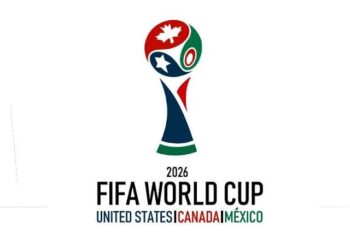The UEFA Champions League (UCL) stands as the zenith of European club football, captivating millions of fans worldwide with its rich history, elite competition, and unforgettable moments. Established in 1955 as the European Champion Clubs’ Cup, it was rebranded in 1992 to its current format, evolving into a global spectacle that showcases the best football clubs across Europe. The tournament’s thrill lies not only in the quality of football displayed but also in its storied traditions, iconic matches, and the prestige it bestows upon its champions.
Over the decades, the Champions League has been the stage where legends are born, and footballing dynasties are cemented. Clubs like Real Madrid, AC Milan, and FC Barcelona have etched their names into the annals of football history through their performances in this competition. As of the 2024–25 season, the tournament has undergone significant format changes, aiming to enhance competitiveness and inclusivity, reflecting UEFA’s commitment to evolving the competition in line with the modern game’s demands.
Let’s check out the UEFA Champions League’s history, structure, recent developments, notable records, and its profound impact on European football culture.
Historical Evolution of the UEFA Champions League
Inception and Early Years (1955–1992)
The UEFA Champions League originated as the European Champion Clubs’ Cup in 1955, conceived to determine the best club in Europe. Initially, it was a straightforward knockout tournament featuring the champions of European domestic leagues. Real Madrid dominated the early years, securing the first five titles consecutively, setting a precedent for excellence.

Transition to the Champions League (1992–2024)
In 1992, UEFA rebranded the competition as the UEFA Champions League, introducing a group stage to increase the number of matches and revenue. This period saw a diversification of winners, with clubs like AC Milan, Manchester United, and FC Barcelona achieving glory. The tournament expanded its reach, incorporating runners-up and, eventually, multiple entrants from top leagues, enhancing its prestige and competitiveness.
Recent Format Overhaul (2024–Present)
The 2024–25 season marked a significant transformation in the Champions League’s structure. UEFA abandoned the traditional group stage in favor of an expanded league phase, increasing the number of participating teams from 32 to 36. Each team now plays eight matches against different opponents, determined by a seeding system based on UEFA coefficients. This change aims to provide a more dynamic and inclusive competition, ensuring a broader range of matchups and increased excitement for fans.
Current Format and Structure
League Phase
In the revamped format, the initial phase consists of a single league table comprising all 36 teams. Each club plays eight matches against eight different opponents, selected through a draw that ensures a balanced schedule. Teams are seeded into four pots, and each team faces two opponents from each pot, one at home and one away. This system replaces the previous group stage, aiming to increase diversity in matchups and maintain competitive balance.
Knockout Phase Qualification
Upon the conclusion of the league phase:
Top 8 Teams: Automatically advance to the Round of 16 as seeded teams.
Teams Placed 9th to 24th: Enter a two-legged playoff round. The winners of these playoffs join the Round of 16 as unseeded teams.
Teams Placed 25th and Below: Are eliminated from European competition for that season.
This structure ensures that more teams remain engaged in the competition for longer periods, maintaining high stakes throughout the league phase.
Knockout Rounds
The knockout stages follow traditional two-legged ties, culminating in a single-match final at a predetermined neutral venue. The away goals rule has been abolished, meaning that if teams are level on aggregate after both legs, matches proceed to extra time and, if necessary, penalties to determine the winner.
Prize Money and Financial Distribution
The UEFA Champions League offers substantial financial rewards, contributing significantly to participating clubs’ revenues. The prize money is distributed based on a combination of factors:
Participation Fees: Guaranteed sums for teams participating in the league phase.
Performance Bonuses: Additional payments for wins and draws during the league phase.
Coefficient Rankings: Payments based on a club’s historical performance in UEFA competitions over a ten-year period.
Market Pool: Shares based on the proportional value of the television market in each country.
However, this distribution model has been subject to criticism for perpetuating financial disparities between established elite clubs and emerging teams. For instance, in the 2024–25 season, Manchester City earned €4.7 million more than Aston Villa during the league phase, despite both teams’ differing performances. This discrepancy highlights concerns about the financial structures reinforcing existing hierarchies within European football.
Notable Records and Statistics
Most Successful Clubs
Real Madrid: Holds the record with 15 Champions League titles, underscoring their historical dominance in European football.

AC Milan: Secured 7 titles, making them the second-most successful club in the competition’s history.
Liverpool and FC Bayern Munich: Each boasts 6 titles, reflecting their consistent excellence on the European stage.
These clubs have not only amassed numerous titles but have also contributed to some of the most memorable moments in the tournament’s history.
Top Goal Scorers
The UEFA Champions League (UCL) is not only a showcase of elite football talent but also a platform where individual brilliance shines. Over the years, numerous players have etched their names into the tournament’s history through remarkable goal-scoring feats.
As of the latest data, the top goal scorers in the UEFA Champions League are:
1. Cristiano Ronaldo: 140 goals in 183 appearances.

2. Lionel Messi: 129 goals in 163 appearances.
3. Robert Lewandowski: 103 goals in 128 appearances.

4. Karim Benzema: 90 goals in 152 appearances.
5. Raúl: 71 goals in 142 appearances.
Notable Goal-Scoring Records
Single-Season Record: Cristiano Ronaldo holds the record for the most goals in a single Champions League season, netting 17 times during the 2013–14 campaign.
Hat-Tricks: Both Ronaldo and Messi have each scored eight hat-tricks in the competition, showcasing their exceptional goal-scoring abilities.
Fastest Goal: Roy Makaay scored the fastest goal in Champions League history, finding the net in just 10.12 seconds for Bayern Munich against Real Madrid in 2007.
Recent Developments
In the 2024–25 season, Borussia Dortmund’s Serhou Guirassy has emerged as a standout performer, leading the goal-scoring charts with ten goals.

His contributions have been pivotal in Dortmund’s campaign, highlighting the emergence of new talents in the competition.
The UEFA Champions League continues to be a stage where individual talents shine, contributing to a rich football history.

Memorable Matches and Moments
The UEFA Champions League has been the backdrop for some of the most thrilling and unforgettable matches in football history. These encounters have showcased dramatic comebacks, last-minute goals, and displays of sheer determination, leaving an indelible mark on fans and the sport itself.
Manchester United vs. Bayern Munich (1999 Final)
One of the most iconic matches in Champions League history took place at Camp Nou in 1999. Bayern Munich took an early lead through Mario Basler’s free-kick and maintained their advantage until the dying moments of the game. However, Manchester United staged a remarkable comeback in injury time, with goals from Teddy Sheringham and Ole Gunnar Solskjær, securing a 2-1 victory and completing a historic treble.
Liverpool vs. AC Milan (2005 Final)
Dubbed the “Miracle of Istanbul,” the 2005 final saw Liverpool overturn a 3-0 halftime deficit against AC Milan. Goals from Steven Gerrard, Vladimir Smicer, and Xabi Alonso leveled the score in a stunning six-minute spell. The match proceeded to penalties, where Liverpool triumphed, securing their fifth European Cup.
Barcelona vs. Paris Saint-Germain (2017 Round of 16)
In one of the most remarkable comebacks in the competition’s history, Barcelona overcame a 4-0 first-leg deficit against Paris Saint-Germain. In the return leg at Camp Nou, Barcelona won 6-1, with Sergi Roberto scoring the decisive goal in the 95th minute, completing a 6-5 aggregate victory.
Cultural Significance
The Champions League anthem, with its distinctive and stirring composition, has become synonymous with elite football, evoking a sense of occasion and prestige. Matchdays are celebrated events, with fans donning their team’s colors, creating a vibrant and passionate atmosphere in stadiums and viewing venues worldwide.
Iconic moments from the competition have entered the collective consciousness, inspiring literature, documentaries, and films. The tournament’s ability to unite diverse cultures through a shared passion for football showcases its profound cultural impact.
Economic Influence
The financial implications of the Champions League are substantial. Participating clubs benefit from significant revenue streams, including broadcasting rights, sponsorship deals, and matchday income. Success in the competition enhances a club’s global profile, leading to increased merchandise sales and international fan engagement.
Nevertheless, the substantial financial rewards for participation and progression can widen the gap between elite clubs and those outside the competition’s upper echelons. For instance, in the 2024–25 season, disparities in earnings between clubs like Manchester City and Aston Villa have highlighted concerns regarding financial equity within European football.
Final Thoughts
The UEFA Champions League is more than just a football tournament; it is the pinnacle of European club competition, a stage where history is made, and legends are forged. From its inception in 1955 as the European Champion Clubs’ Cup to its evolution into the modern-day spectacle, the UCL has consistently delivered elite football, unforgettable moments, and intense rivalries that captivate fans across the world.
With the recent format changes introduced in the 2024–25 season, UEFA aims to make the competition more competitive and inclusive, ensuring that clubs from diverse leagues have greater opportunities to shine.
Beyond the pitch, the Champions League wields immense cultural and economic influence, with its iconic anthem, global fanbase, and massive commercial value solidifying its status as the most prestigious club football competition in the world. The drama, excitement, and sheer unpredictability of the tournament ensure that each season delivers new heroes, heartbreaks, and triumphs that will be remembered for generations.

As football continues to evolve, one thing remains certain; the UEFA Champions League will always be the ultimate proving ground for clubs and players aspiring for greatness, and its legacy will continue to shape the future of the beautiful game.




















